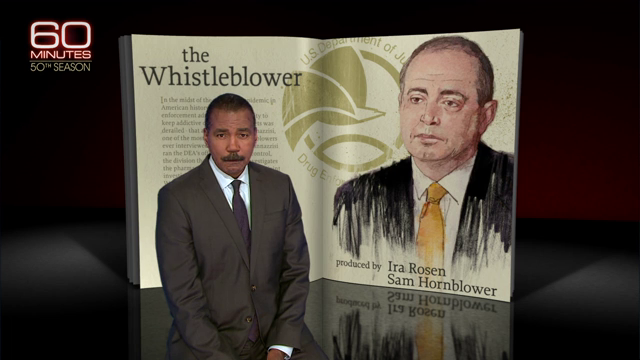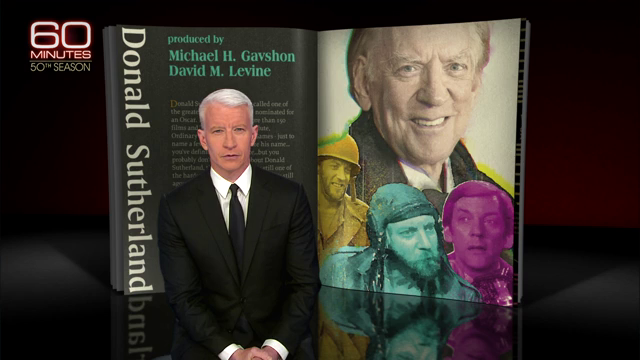You are here
60 Minutes s50e40: the Whistleblower; Donald Sutherland (2018.06.17)
Primary tabs
| Size | Seeds | Peers | Completed |
|---|---|---|---|
| 382.05 MiB | 1 | 0 | 78 |
Duration: 44m14s
Resolution: 640x360
Video Format: AVC
Audio Format: AAC


The Whistleblower
Ex-DEA agent: Opioid crisis fueled by drug industry and Congress
Whistleblower Joe Rannazzisi says drug distributors pumped opioids into U.S. communities -- knowing that people were dying -- and says industry lobbyists and Congress derailed the DEA's efforts to stop it
In the midst of the worst drug epidemic in American history, the U.S. Drug Enforcement Administration's ability to keep addictive opioids off U.S. streets was derailed, that according to Joe Rannazzisi, one of the most important whistleblowers ever interviewed by 60 Minutes. Rannazzisi ran the DEA's Office of Diversion Control, the division that regulates and investigates the pharmaceutical industry. As we first reported last October, in a joint investigation by 60 Minutes and The Washington Post, Rannazzisi tells the inside story of how, he says, the opioid crisis was allowed to spread aided by Congress, lobbyists, and a drug distribution industry that shipped, almost unchecked, hundreds of millions of pills to rogue pharmacies and pain clinics - providing the rocket fuel for a crisis that, over the last two decades, has claimed more than 200,000 lives.
Donald Sutherland
The long, unconventional career of Donald Sutherland
Donald Sutherland has appeared in more than 150 films and TV shows, and at 82 years old, he remains one of the hardest working actors in show business
Donald Sutherland has been called one of the greatest actors never to be nominated for an Oscar. He's appeared in more than 150 films and TV shows - "MASH," "Klute," "Ordinary People," "The Hunger Games" - just to name a few. You may recognize his name, you've definitely seen his face, but you probably don't know much about Donald Sutherland, the man. At 82 he's still one of the hardest working actors around. And as we first reported in December, he's still agonizing over each character he plays, and still plagued by self-consciousness about how he looks. He's never forgotten what happened after his very first film audition more than 50 years ago, when the writer, director, and producer of the movie he tried out for called him on the phone.
Donald Sutherland: The writer said, "You did such a terrific job. And the producer said, "We thought you were really wonderful. And we all wanted to call you together to explain to you why we weren't casting you." And he said, "No. No. No. I mean, we have to-- the reason why we're not casting you is because we've always thought of this fellow as a kind of-- a guy next door sort of guy. And to be absolutely truthful, we don't think you look like you ever lived next door to anybody." No. But it's the story of my life, you know.
Anderson Cooper: That's the story of your life?
Donald Sutherland: Yeah.
- Log in to post comments

Comments
The Whistleblower is 60 Minutes @ its best
It clearly demonstrates how people at the top of the U.S.government blocked legislation that would curb the uncontrolled sale of millions of opiod pills to addicts. They also passed legislation to grant immunity to big pharma from prosecution for drug pushing. This is proof that the massive opiod epidemic in U.S and Canada is a direct result of government and corporate collusion -- fascism used to devastate families and kill its own citizens for profit.
An interview by Anderson Cooper
Interviewee: Some people are grossly overpaid for what they do.
Anderson Cooper: Some people are grossly overpaid for what they do?
Interviewee: Yes. Some people get their jobs only because of who their parents are.
Anderson Cooper: Some people get their jobs only because of who their parents are?
Interviewee: Correct. Repeating statements back as questions is infantile.
Anderson Cooper: Repeating statements back as questions is infantile?
Interviewee: Yes Anderson.